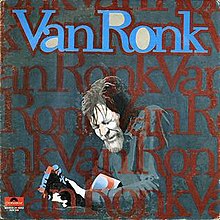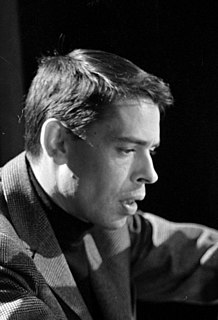
Jacques Romain Georges Brel was a Belgian singer, songwriter, actor and director who composed and performed literate, thoughtful, and theatrical songs that generated a large, devoted following—initially in Belgium and France, later throughout the world. He is considered a master of the modern chanson. Although he recorded most of his songs in French and occasionally in Dutch, he became an influence on English-speaking songwriters and performers, such as Scott Walker, David Bowie, Alex Harvey, Marc Almond and Rod McKuen. English translations of his songs were recorded by many performers, including: Bowie; Walker, Ray Charles; Judy Collins; John Denver; The Kingston Trio; Nina Simone; Shirley Bassey; Frank Sinatra and Andy Williams.

The Anthology of American Folk Music is a six-album compilation released in 1952 by Folkways Records, comprising eighty-four American folk, blues and country music recordings that were originally issued from 1926 to 1933. Experimental film maker Harry Smith compiled the music from his personal collection of 78 rpm records. The album is famous due to its role as a touchstone for the American folk music revival in the 1950s and 1960s. The Anthology was released for compact disc by Smithsonian Folkways Recordings on August 19, 1997.

David Kenneth Ritz Van Ronk was an American folk singer. An important figure in the American folk music revival and New York City's Greenwich Village scene in the 1960s, he was nicknamed the "Mayor of MacDougal Street".
The "Alabama Song"—also known as "Moon of Alabama", "Moon over Alabama", and "Whisky Bar"—is an English version of a song written by Bertolt Brecht and translated from German by his close collaborator Elisabeth Hauptmann in 1925 and set to music by Kurt Weill for the 1927 play Little Mahagonny. It was reused for the 1930 opera Rise and Fall of the City of Mahagonny and has been recorded by the Doors and David Bowie.
The Gaslight Cafe was a coffeehouse in the Greenwich Village neighborhood of Manhattan, New York. Also known as The Village Gaslight, it opened in 1958 and became notable as a venue for folk music and other musical acts. It closed in 1971.
"Amsterdam" is a song by Jacques Brel. It combines a powerful melancholic crescendo with a rich poetic account of the exploits of sailors on shore leave in Amsterdam. Musically, it takes its base melody line from the melody of the English folk song Greensleeves.
Luke Faust is an American folk musician. In the early 1960s he played a five-string banjo and sang Appalachian ballads, at The Gaslight Cafe in Greenwich Village, New York City. For five or six years, Faust performed with Jerry Rasmussen. One of his fellow entertainers at the Gaslight was Bob Dylan, who described Faust as "Someone closer in temperament to me."

Have Moicy! is the 1976 album released by Michael Hurley, The Unholy Modal Rounders, and Jeffrey Frederick & the Clamtones. In 2011 Light In The Attic Records reissued Have Moicy! on vinyl. It is difficult to give credit to which band performs on which song because there are no credits to the individual groups.

No Dirty Names is a 1966 album by artist Dave Van Ronk. It features the first recorded version of Bob Dylan's song "The Old Man".
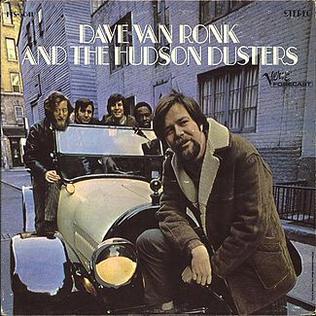
Dave van Ronk and the Hudson Dusters is a 1967 album featuring Dave Van Ronk.

Dave Van Ronk and the Ragtime Jug Stompers is an album featuring Dave Van Ronk playing with a jug band.
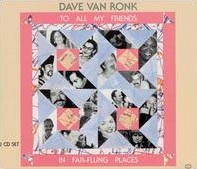
To All My Friends in Far-Flung Places is a 1994 album by Dave Van Ronk, the theme of which was to perform versions of songs written by people he knew.

Going Back to Brooklyn is an album by American folk and blues singer Dave Van Ronk, released in 1985.

Your Basic Dave Van Ronk is an album by American folk and blues singer Dave Van Ronk, released in 1982.
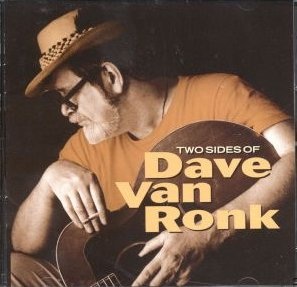
Two Sides of Dave Van Ronk is a compilation album by American folksinger Dave Van Ronk, released in 2002. It includes the complete 1963 LP, In the Tradition and all of 1982’s Your Basic Dave Van Ronk except for "In the Midnight Hour" and "Stagolee".

The Mayor of MacDougal Street: Rarities 1957-1969 is a compilation album by American folksinger Dave Van Ronk, released in 2005.
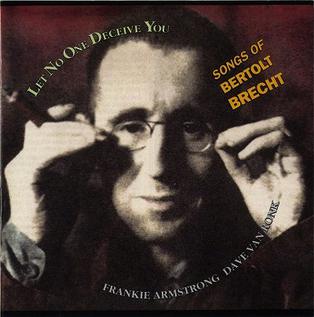
Let No One Deceive You: Songs of Bertolt Brecht is an album by American folk and blues singer Dave Van Ronk and vocalist Frankie Armstrong, released in 1992. It consists completely of songs by Bertolt Brecht.

Inside Llewyn Davis is a 2013 black comedy-drama film written, directed, produced, and edited by Joel and Ethan Coen. Set in 1961, the film follows one week in the life of Llewyn Davis, played by Oscar Isaac in his breakthrough role, a folk singer struggling to achieve musical success while keeping his life in order. The supporting cast includes Carey Mulligan, John Goodman, Garrett Hedlund, F. Murray Abraham, Justin Timberlake and Adam Driver.

Going Nowhere Fast is the eighth studio album by psychedelic folk band The Holy Modal Rounders, released in 1981 through Rounder Records. It was recorded as a duo and credited as Stampfel & Weber.
Llewyn Davis is a fictional character, the main protagonist of the film Inside Llewyn Davis. He is a young, struggling folk singer trying to become more famous and financially successful after the flop of his debut album, Inside Llewyn Davis.
